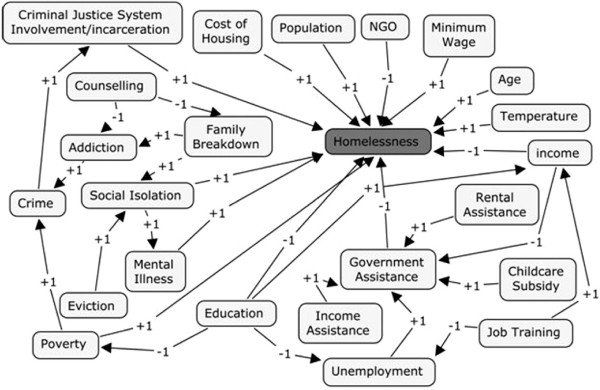The Trouble with Jesus
by Constance Hastings
The Trouble with Jesus: All-loving God and Dangerous Radical. Can you have both?
Jesus liked a good time. He enjoyed eating with friends and did not seem to mind so much when his critics came along at least to watch. His disciples were called out for not fasting a lot but who enjoyed a good meal. The Lost Sheep, Lost Coin, and Prodigal Son stories all end in celebrations. His first miracle happened in the middle of wedding festivities. And there’s no telling what it was like when he fed thousands of people or healed the hopeless. Who wouldn’t want to celebrate the good times?
So when he told this story about a king who threw a great banquet to celebrate his son’s wedding, it fits. The Son of God is comparing the Kingdom of Heaven to his father’s reign. It’s a party, and the invite list is huge. Go with it.
Wait! Can you have both?
Event of the Year
The king prepares for this great celebration, a state dinner set with the best culinary finds and ample wine to enhance the meal. He sends out the invitations. Twice. But something strange happens. The invitees refuse to come, ignoring his messengers and going about their usual business. Who wouldn’t want to be at the event of the year? But they won’t come.
So the king decides if that’s the way these people will be, he’ll extend the invitation to those who will really appreciate it. He sends out the order for his servants to find anyone on the streets, no matter how respectable or despicable they might be, and bring them in. The banquet hall is filled, and this party is happening!
Ingrate Guest
Except there’s this bum who didn’t even try to find some kind of appropriate dress for the occasion. (Now, to bring in some context here, the original listeners to the story knew often at these regal affairs, the guests were presented with a wedding overcoat upon arrival.) The slob didn’t change into what was likely a fine robe to covers his rags. Insulted and infuriated at being disrespected, the king has him thrown out again into the darkness, a place of such regret there is “weeping and gnashing of teeth.”
1st Reading
Put this in perspective. The king (read God) has prepared a feast for all who will accept him and come to his celebration table for his son (read Jesus.) But there are those who refuse to accept the invitation (read the religious elite who would not accept Jesus’ message.) So king/God says son/Jesus will extend the invitation instead to those who are the people of the street, (read those whom the priests would despise as not being good enough for their company, usually prostitutes and tax collectors who collaborated with the Romans.)
Now, what’s not to love about this story? You’ve got a portrayal of God who is all-inclusive to those who will come into his house and feast at his banquet table. Both good and bad are then worthy to receive his love and the message of his Son. It’s another smackdown for the oppressive, legalistic religious leaders, and it’s uplifting for those who aren’t good enough according to their kind.
Yeah God! You’ve made that clear.
Oh, and the jerk who wouldn’t change his clothes? Let’s do some serious theology here. All are invited to God’s banquet, but there’s an expectation when the invitation is accepted. This guy represents those who think they can have a God who loves and saves but not have to change their former values. A new lifestyle is required. Yes, there is grace in that God calls everyone, and there is no other access to God besides accepting his invitation through the Son. But once accepted, a new path and way of living should be evident. It’s the familiar, but true, grace is free but not cheap.
Yes sir, dear Jesus, you’ve set this one down just fine. Let the party begin. What, there are a few things we’ve might have missed in the story? What do you mean? Go over it again.
Tunnel Down
This is where a shovel is needed to dig deeper, deeper into reading how this was heard and understood to the crowd around Jesus as he told this story in the Temple. Not only would it have a different meaning to those who heard it straight from Jesus’ lips, it can have a different twist in what it means today.
Jesus starts by saying the Kingdom of Heaven can be compared to…. Compared to. That can mean both how things are alike and how things are different. You’ve got to give honest focus on that. Drop expectations as to how you’re thinking the Kingdom of Heaven should be and what the Kingdom of Heaven is not.
Jesus’ illustration is in the story of a king. It’s an allegory which means the details in the story represent things or others beyond just what’s in the story. But who is to say that the king in this story is actually God acting in his kingdom? As it is, the translation from the original Greek for the word king has the designation of man, human, mortal, no more divine than you and I are. So who is this guy supposed to be?
The king/man’s invitations are rejected. Again, who wouldn’t want to be at the event of the year? Maybe they didn’t like him personally, or some policy he had, or maybe they were afraid of what might happen in the king’s house. Some of the invitees reacted and treated the king’s messengers badly, even killing some of them. Who would do that, except maybe those who’d had previous experience with this king, who didn’t for hopefully some good reason trust the king’s invitation/intentions. The drama has some secrets it’s concealing.
The king is furious at how he’s being treated. He retaliates by sending out his national army to do away with these murderers, even burns the city. That’s rather heavy-handed, but apparently it’s also how he works. When the street people are invited in, it may have been more like rounded up. At any rate, seeing what the others got for refusing to go, maybe they thought they had no choice.
The banquet hall was filled though, just like the king wanted. It’s when he is greeting his guests (never let a good photo-op go to waste), he spots the guy without proper wedding guest apparel. He challenges the rebel as to why he’s not dressed appropriately. The guy has no reply. Likely it wouldn’t have mattered if he had given a defense. The king wanted him gone, and into the outer darkness, etc. he was sent.
Another Angle
Now, again, let’s look at this. The people in the Temple knew an egomaniacal ruler just like this. His name was Herod, and what Herod didn’t like usually meant rousing his sadistical wrath. Most people knew the more space between Herod and themselves, the better. In other words, stay out of his parties or someone could lose their head. (John the Baptist was a good example.) If you protested Herod’s regime, you better be prepared for battle because the slightest disagreement would have him marshal the troops.
When this guy was noticed by the king for having not dressed for the party, the Temple crowd also knew what that meant. If you spotted or pointed out what was anything from inappropriate to downright immoral in Herod, you were as good as gone. Outer darkness very well could be prison for you and despair of death was likely. (Again, such was JTB’s fate.)
Get the perspective here. This narrative was told right in the Temple. Jesus had already called out the Temple priests and Jewish religious leaders for their rejection of him as Messiah. Now he was taking a different stance, this time against Roman rule. Before the week was over, Jesus would be standing in Herod’s court, refusing to answer his charges. Ironically, Herod would mock him by putting a royal robe on him, (Luke 23:11) dressing Jesus as the kind of king he would be. By the time the day was over, Jesus would be in that place of outer darkness.
The kingdom of heaven can be compared to…but is not at all like kingdoms of this world. To approximate even in part God’s kingdom is to understand the inclusiveness of God in love to all the world, the invitation that is available to all, and the transformation in life that can mean. But beware of picking and choosing what you want like about God and not listen to the full story.
In other words, be careful which party you attend.











